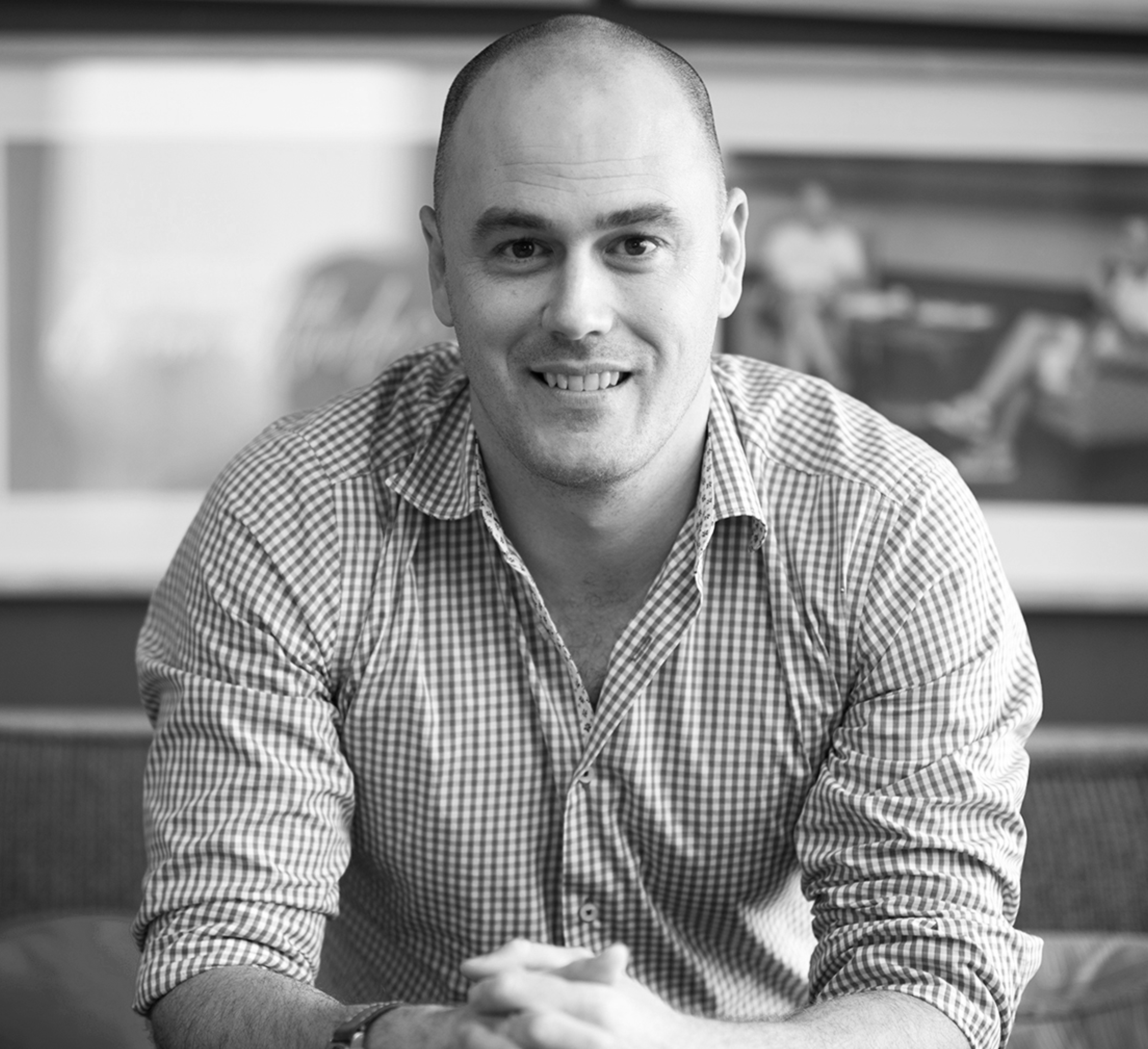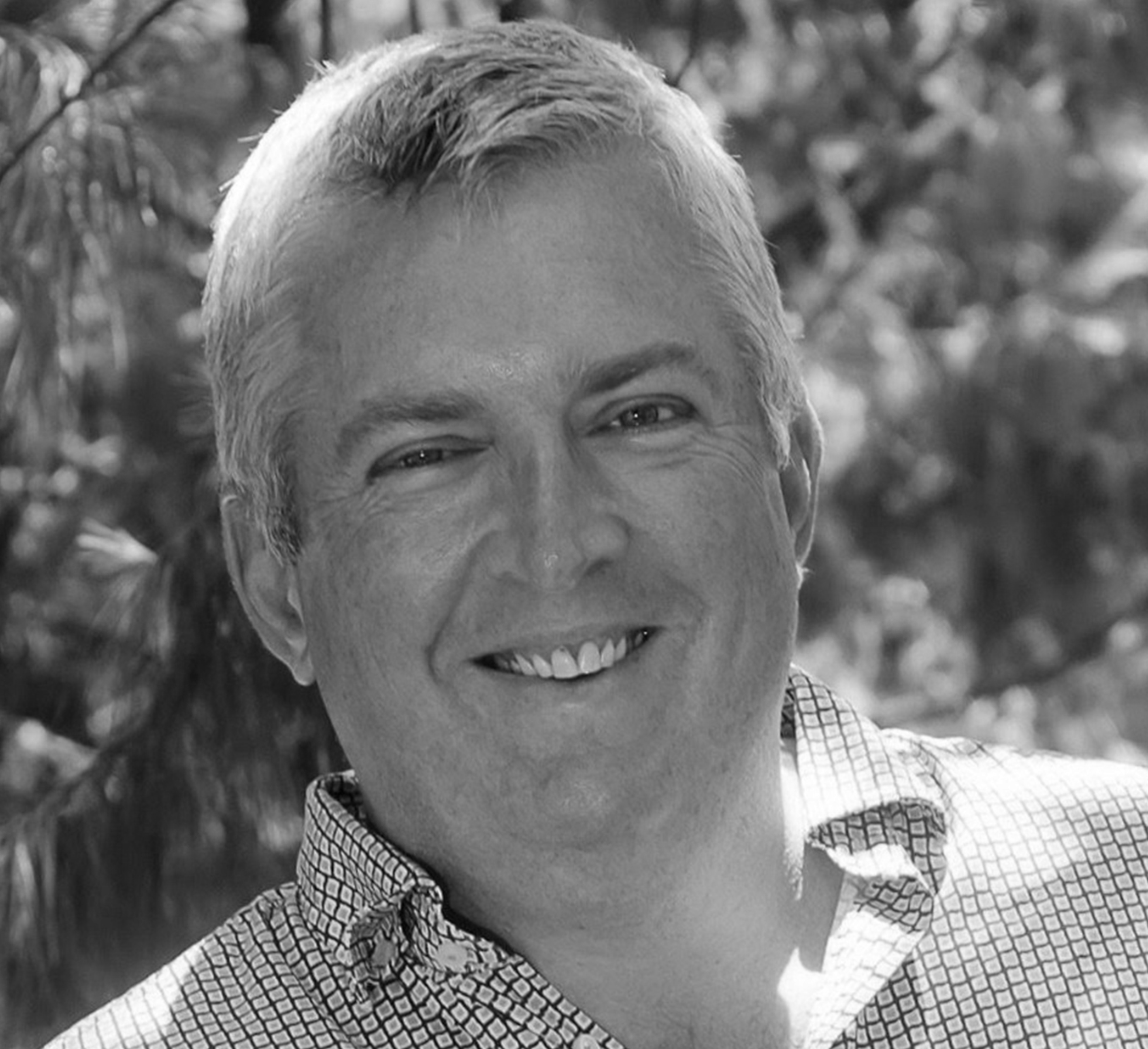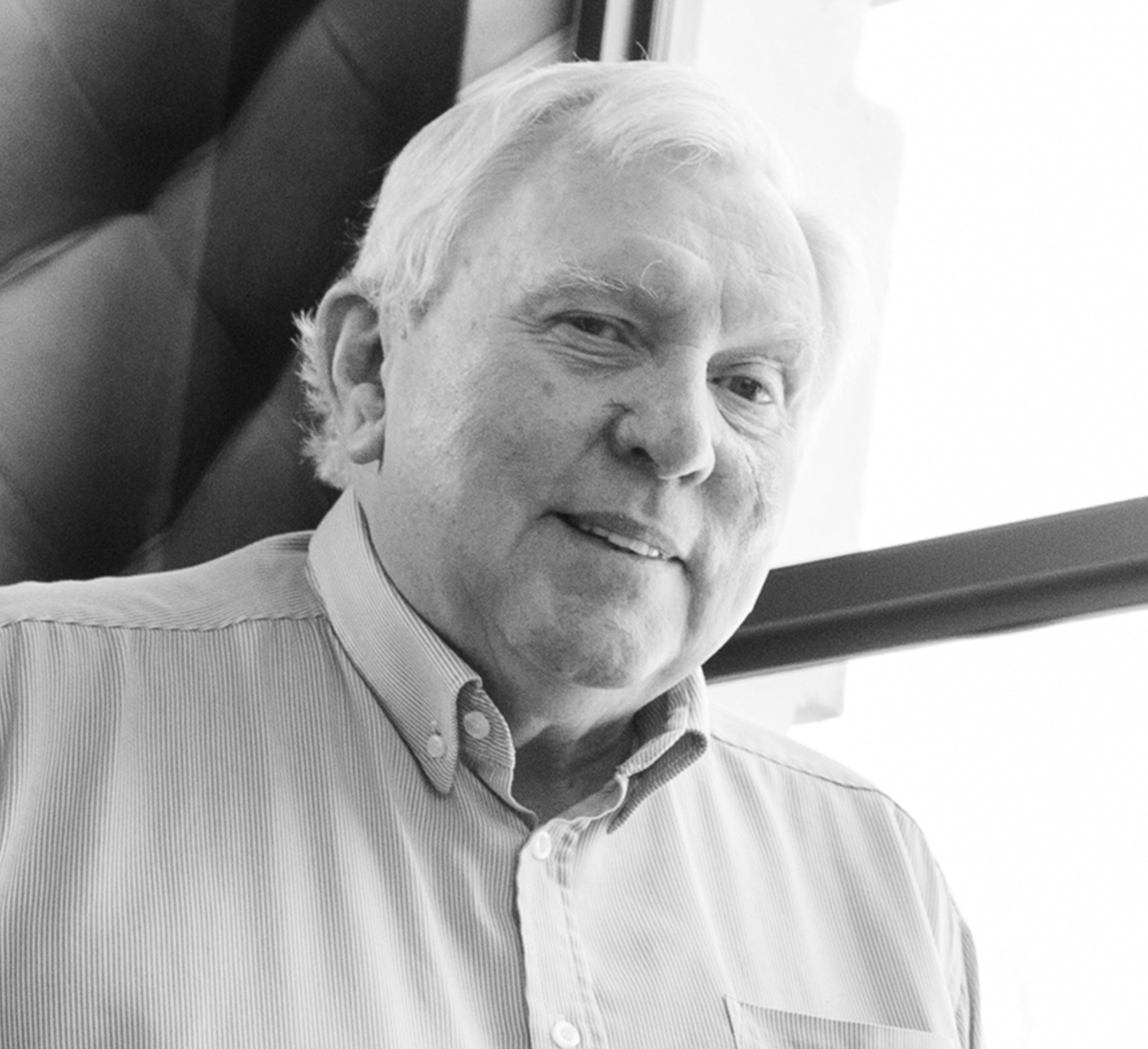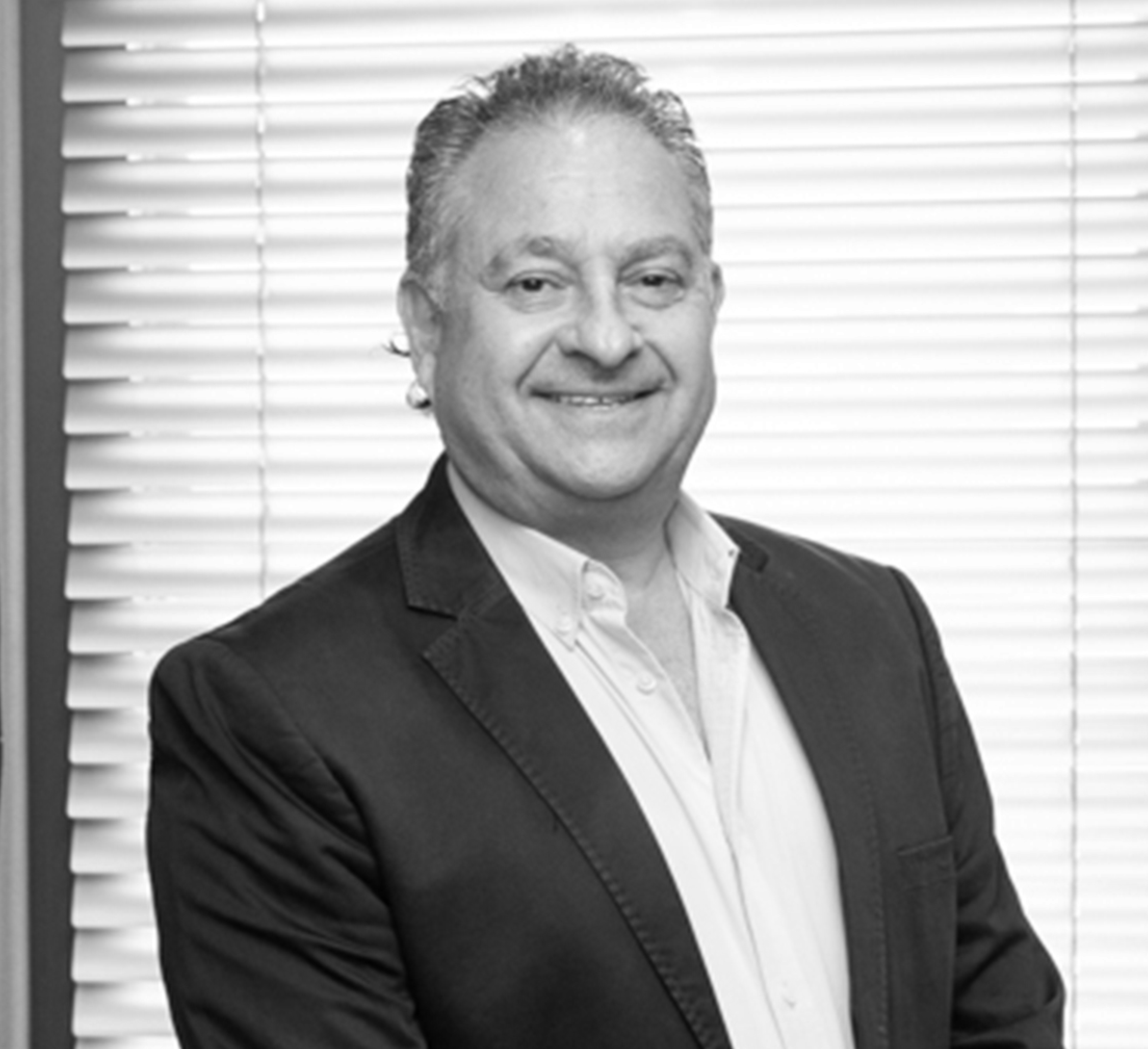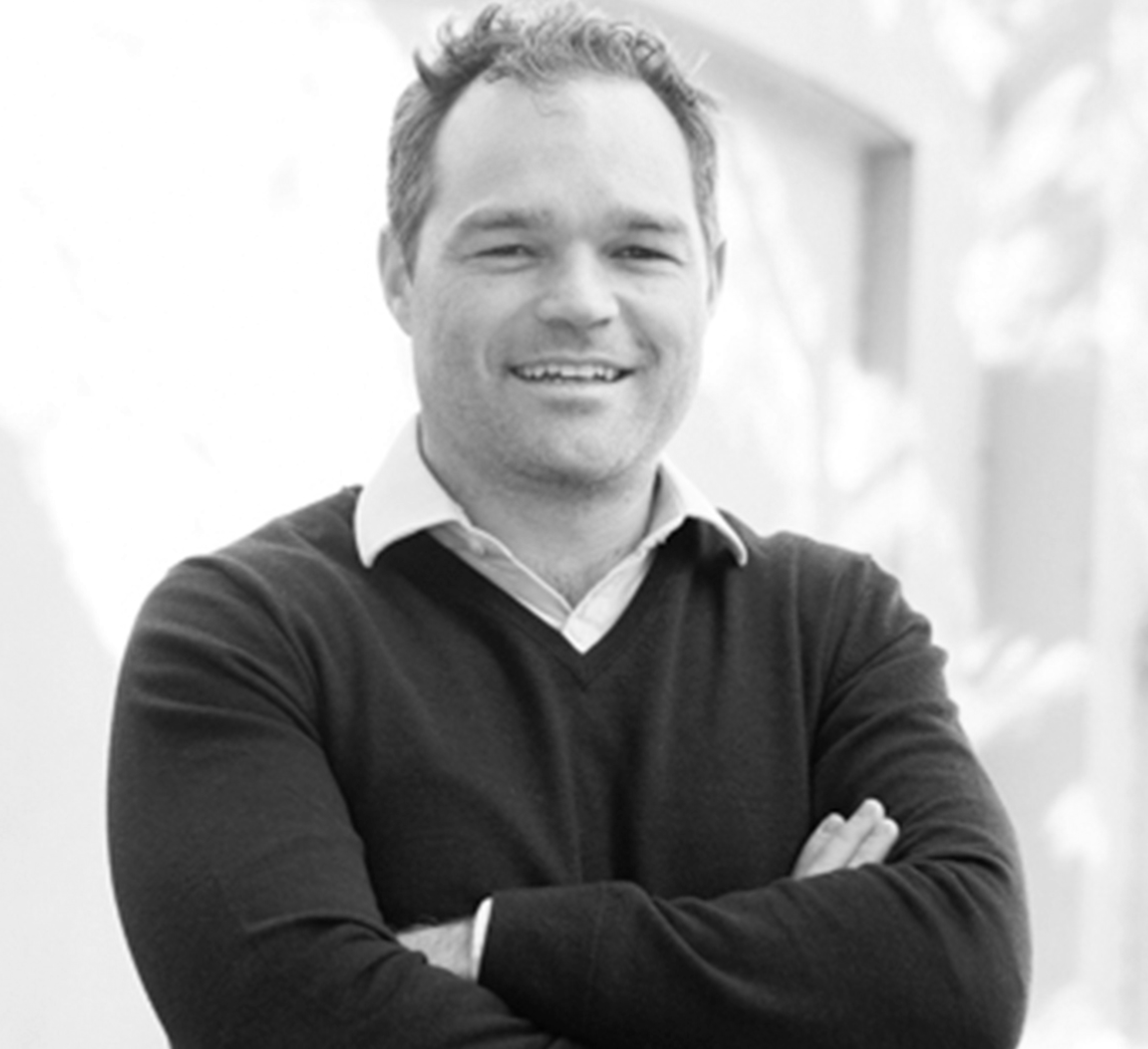32: Brad Toerien
Chief Executive Officer – FMI
‘We want to make sure that if you’re unable to work you’re financially in the same position as if you worked’

CIARAN RYAN: This is CFO Talks and today I am joined by Brad Toerien, who is the chief executive officer of insurance company, FMI. That’s a position that he’s held since 2008, FMI is an interesting upstart company that pioneered income protection for self-employed people in South Africa, as well as for non-professionals and many other uninsurable occupations. Let’s face it, insurers in South Africa don’t have the best reputation, they quibble over claims and it seems that bean counters have run riot through the industry. Brad, I’m not sure if you agree with that introduction, but welcome to CFO Talks and it’s good to have you on.
BRAD TOERIEN: Thanks so much, it’s great to be chatting to you, I think I agree with most of the introduction and I think you’re spot on, the insurance industry, not just in this country, but probably worldwide doesn’t necessarily get the best reputation, I think some of it is entirely fair and some of it probably not so much, I think there’s a side to the industry that not a lot of people see.
CIARAN RYAN: Tell us a little bit about FMI and how it came into being, you obviously saw a gap in the market that wasn’t being serviced and you zeroed in on that, so give us a little bit of history.
BRAD TOERIEN: I joined the business in 2003 straight out of varsity but FMI itself began in 1995, so some of what I’ll say I have heard secondhand from the founders. But essentially it started to offer income protection to the self-employed and the entrepreneur market, as I understand the story, a friend of the founder, Simon, her daughter was running a business and got injured and was in hospital and during her time in hospital and being unable to work meant that effectively she lost her business and lost her whole financial wellbeing. At the time the only way you could get income protection was if you were a professional. So it was really that idea that started the business and it kind of evolved more as a brokerage than as a life insurer. But over the years we gradually transformed the business from offering quite a narrow product, specifically income protection, to what we think now is a complete risk offering and moving it from being a brokerage to a fully- fledged life insurer and it’s been a fascinating journey.
CIARAN RYAN: So you’ve actually got a life insurer licence and you’ve moved from broking into insurance underwriting, how many different products are you currently offering, if that’s the right way to phrase it?
BRAD TOERIEN: Yes, it is, we offer a range of products, but the vast majority of our business is individual business and it’s risk only. So we don’t do investment or savings, we focus exclusively on the risk, within that one product we have got multiple benefits, so we see the world through a very strong income lens, which is very different to the way life insurance is traditionally being done. I’m sure if you’ve ever spoken to a financial advisor, the conversation would have started around life cover and lump sum. For us, we start completely on the other end and it’s about protecting your ability to earn an income, we think the only thing you should be worrying about is how do you secure your income stream against anything horrible happening to you.
Protecting people from the impact of not being able to earn an income
CIARAN RYAN: Just zero in on that, if you don’t mind, for a minute, what are some of the gaps in the life insurance industry that you’ve identified and the gaps that you are filling that are not currently provided by others.
BRAD TOERIEN: I think there are a number of gaps and that all comes from, I suppose, the reason why we began in the first place and to some extent as much as the business has changed and evolved, that original purpose hasn’t changed. We talk about the fact that we exist to protect brave people from the impact of not being able to earn an income. That’s our stated reason for existence and from that you then say, well, how do you apply that? For us, the three themes for us, how do we apply that to how we construct and design life insurance products. That’s really what I was touching on is that it starts from what we call income first, for us everything is about how do we protect your future income stream and we do that through benefits that would pay you an income if something happened to you, whether you were injured or ill, whether it’s a temporary condition like a sprained ankle, where you’re unable to work for a week or two, to something far more serious like cancer. For us it doesn’t make a difference really, we want to make sure that if you’re unable to work you’re financially in the same position as if you worked. Where I suppose we are particularly unusual is that we take that this philosophy even to life cover, even in the event of death, where even there we believe you should be leaving an income to any of your beneficiaries and that’s a far better match for the way you want to protect your family than leaving them with a large lump sum of money.
CIARAN RYAN: I noticed that Bidvest has acquired is it 100% of your company and that was some years back. That’s quite an endorsement once you’ve got Bidvest on your side, explain how that came about?
BRAD TOERIEN: It was about three-and-a-half years ago, almost four years ago, and at the time I was a major shareholder with a partner and we were growing nicely, it’s a beautiful business, we had a really good couple of years and out of the blue Bidvest got hold of me and asked if we were interested. Our first response was we’re not interested at all, we’re quite happy. But I think what swung us over was realising that the Bidvest approach is one where they buy entrepreneurial businesses, endorse them and then set them free. To grow a life insurance business is a capital-hungry business, it takes a huge balance sheet behind you and it was really the realisation that me kind of hanging onto the business was probably going to limit our ability to grow and achieve the potential that I really felt this business had. So in a way being acquired by Bidvest was a way to give us the chance to really expand quickly and do what I believe this business is capable of. It’s been an unbelievable last three or four years doing exactly that.
CIARAN RYAN: I guess it also plugs you into the Bidvest family of companies, I think they must have hundreds of thousands of employees across the group.
BRAD TOERIEN: I still don’t understand all the businesses, it’s been crazy just getting to understand how diverse and powerful this group is, every month I come across another business that’s Bidvest-owned or part of Bidvest. They have managed to build up an incredibly diverse business across almost every industry you can imagine.
CIARAN RYAN: It’s like finding a distant cousin who you never knew existed, they pop out of the woodwork all the time.
BRAD TOERIEN: Exactly and they all tell the same story, they all talk about how Bidvest has enabled their business to grow and it’s an extremely light touch, they are not a typically hands-on interfering shareholder, they really let you run your business.
CIARAN RYAN: They have bought 100%, is that correct?
BRAD TOERIEN: Exactly and as part of that transaction we took over Bidvest Life licence, at the time it was not dormant but not really being fully utilised.
Sales volumes have tripled since Bidvest acquired FMI
CIARAN RYAN: Give us an idea of your growth pre and post the Bidvest buy over.
BRAD TOERIEN: In terms of sales volumes, in the last three years we’ve probably more than tripled. In terms of staff head count it’s been amazing, I think three or four years ago we were probably had about 60-odd staff, we’re now sitting at around 220. So it’s been a phenomenal rate of growth, 220 is still a relatively small business but given how quickly we’ve grown there, it’s been an incredible journey. That’s brought a whole lot of leadership challenges all on its own.
CIARAN RYAN: You spend a lot of your time managing people rather than the business, I guess?
BRAD TOERIEN: Yes and no, in some ways less because what we’ve been able to do is build up a really strong leadership structure across the business. I am really lucky that I’ve got an amazing team around me, so in some ways I spend less time close to people than I used to and part of that is what I miss, from a much smaller “family-type” business to now where I don’t know everybody as well as I used to. But it opens you up to entirely new challenges, you’re now able to think on a much bigger scale and really be a lot more ambitious about what you are setting out to achieve
CIARAN RYAN: So you still have, I guess, what is the spirit or the core of an entrepreneurial business even though you’re under the Bidvest umbrella. Do you think the company can retain that culture?
BRAD TOERIEN: That’s probably been our number one focus over the past three years, and I look back with pride on the fact that we’ve kept it. In fact, we often say we are almost more FMI now than we were then and it’s been very deliberate, I don’t think that happens by mistake. One of the first things we did after the transaction was announced is we took all of the staff away for two days and we spent two days basically discussing what are the things that make FMI, FMI. What are the things that are so precious that we will never let change and, equally, what are the things that need to change in order for us to grow and achieve our ambitions and then we put a whole lot of things in the business just to try and keep that smaller family feel, even the way we recruit people, we are very careful about our recruitment process. We introduced something called a culture panel, where if I am hiring someone and even though they’ve gone through all the tests and all the assessments and I am happy to hire them, before we can make that decision six or seven people from around the business meet that individual and the only reason they meet them is from a culture point of view to see whether we want them to join our family, whether they would fit. It’s not around job fit. That decision is final, they have overruled people who I have wanted to hire and I think doing things like that has been quite a powerful message to all of the staff to say that this culture and these values that we have as a business is not mine, it’s ours and we are all responsible for protecting that and that’s a very tangible way of giving that kind of power and ownership over, if that makes sense.
CIARAN RYAN: It does make sense. CFO Talks goes out to the finance community and to CFOs, and I think this is something that will resonate with a lot of CFOs, is the culture in an organisation. It does get into the very soft touch areas, doesn’t it, of do I like this person or don’t I like this person, never mind their technical competencies. Can you just spell out how do you define that, how do you put that into being the culture of an organisation, where you’re bringing other people in there and you’re asking them to make a judgement about a new employee and whether they would fit in. Doesn’t that get to be a very subjective thing?
BRAD TOERIEN: I think you can’t get away from it being in some sense subjective but what we work really hard on is trying to make them more objective because I think the danger of cultures and values is that it could very quickly slip into a cult and it very quickly slips into “I only want to hire people like me, who I want to hang out with”, and that’s very dangerous because you are missing out on people who are going to challenge you, people who have a different view, people who are going to make you slightly uncomfortable. So what we’re trying to do as a business is to say we’ve defined what our values are, for us it’s bravery, excellence and empathy, which on the surface probably sounds like ten other businesses. But what we’ve done is taken it to the next level and spent a lot of time saying what are those behaviours, what does bravery mean and what doesn’t it mean. Once you can break them down into those behaviours then it gives you a much more objective way to identify who fits that and who doesn’t. We’ve brought that into the way we measure performance, the way we reward individuals, so we’re trying to weave it throughout our entire business, even to the extent of how we measure our strategic progress when we’re reporting to the board and other stakeholders. So I think for it to be more than just a picture frame that you have above your reception area, you really have to make it real and bring it into everything and how you measure it, you have to make it a numbers game rather than just something soft and fluffy.
‘We believe we are pioneering income protection for occupations that previously could never get it’
CIARAN RYAN: Talk about the bravery issue, how do you measure that, for example?
BRAD TOERIEN: Measuring it is tricky but we can define it. So for us, the way we bring bravery in is at a strategic level it’s how we set out our business challenges. We see bravery as what we’re doing, we’re going in and trying to disrupt the industry, we’re trying to change the way the life insurance products are designed, the way advice is given. We believe we are pioneering income protection for occupations that previously could never get it.
CIARAN RYAN: For example?
BRAD TOERIEN: So, for example, three years ago we launched an income protection product where we were able to cover oilrig workers, we were able to cover professional sportsmen, typically occupations that previously no one would go near to, they were seen as far too risky. We want to protect everyone who earns an income, so if you say that is your purpose you actually have to live it. So our challenge is to make sure that every single day we can expand our product so that there’s no one who isn’t able to get it because of how they choose to earn a living. I think when you’re going into a place that people haven’t gone before that is brave, that’s almost the very essence of it.
CIARAN RYAN: You’ve got a background in actuarial science, which seems logical if you’re going to run an insurance operation. Each year Old Mutual publishes a report on the state of savings in the country and it always makes for depressing reading, very few people have anything like the savings they need to retire with, which means they will likely end up as wards of the state or wards of other family members. I know you are not really in the savings industry but maybe you can speak around the subject, why is the savings culture in South Africa so bad and is there anything that can be done about it?
BRAD TOERIEN: It’s such a difficult one because alongside all those articles about poor savings you’ll see advice about stop having one cup of coffee a day because if you save that amount it can change your future. That is the reality, if people change the way they live and the way they spend money every day and spend less money on materialistic or superficial things you could fundamentally change that savings culture, but I think that’s such a challenge. Even if you take that into account, I think the middle class is just struggling to get through the month every month, our cost of living has increased. So we almost look at it slightly differently because we come at it from a risk management point of view, as opposed to a savings point of view. I think this is a great example of where we know the world has changed, we know that we’re living in a completely different reality, but we still seem to apply the same traditional metrics that are totally outdated. We still assume that we’re going to work until 65, retire and die at 90, and that’s still the basis of most financial planning and most savings. All evidence suggests that’s wrong, we know we are living longer and healthier lives than ever before and if that’s the case, why should you retire at 65, why wouldn’t you want to continue working for longer. If you take that premise then the argument shifts from saying how do you save to be able to retire at 65, to rather saying how do you protect your health so that you’re able to continue earning an income for longer, and then that moves back into our space.
CIARAN RYAN: So your income protection products are very much geared towards that kind of philosophy?
BRAD TOERIEN: Exactly, an example of something we’ve done that to my knowledge no one else in the world has done, is we’re able to offer income protection up until the age of 75. Again, because we’ve accepted the fact that people are going to want to live and work for longer than ever before, either because they can’t afford to retire at 65 or because they just don’t want to because sometimes stopping working is the worst thing for your health.
‘The most dangerous year of your life is the year you retire’
CIARAN RYAN: Absolutely, you start pottering around the garden and nursing a broken body.
BRAD TOERIEN: Exactly, there’s an incredible statistic that says the most dangerous year of your life is the year you retire, you are 30% more likely to die the year after you retire than the year before. It just shows how as human beings when you take away our sense of purpose, we almost literally lose the will to live, it’s an incredible stat.
CIARAN RYAN: Yes, a friend of mine who was a very senior R&D manager for a gold mining company retired and he said after two days of ordering the gardener around at his home he decided to start his own business and he’s created an amazing business in his retirement years, doing far better financially than he ever did while he was employed. I think it comes back to that thing of purpose.
BRAD TOERIEN: Exactly, it’s having purpose and I think it’s also around making sure that you protect your health so that you’re able to do it at an older age. So we’re not saying don’t save, we’re definitely not saying ignore your retirement future but I do think that protecting your health and protecting your income comes into that conversation, that shouldn’t be in a separate box.
CIARAN RYAN: Let’s talk for a minute about things which would be close to the heart of a chief financial officer, when you turn on the TV theses days it seems that there’s nothing but corruption all around us and in many cases accountants and CFOs are enablers of this. In your opinion, how do we protect against this slide into depravity, if I can call it that.
BRAD TOERIEN: I think it’s probably an accurate term, it’s terrible. It’s horrible as a businessperson to be seeing all of those things happening because you almost get tarnished by association. I read as many articles as I could about Steinhoff and trying to understand what happened there and it seems like, I don’t believe that people set out necessarily to do bad things, and I think sometimes this corruption is a gradual creep. So the things that we have done in our business to try and protect it, and I have mentioned it a few times, is that we have this very clear purpose that comes before profit and it allows you to look through a completely different lens and make sure that you have a longer-term view on everything. You’re only able to do that if you’ve managed to communicate that to all of your stakeholders, your shareholders, your board and everybody has come along for the same journey. That allows you to have a longer-term view. So I think for us that’s very important and having very critical metrics that you can measure so that it isn’t just a fluffy story. The other thing that I think is really important is as a leader you need to surround yourself with people who are prepared to challenge you because I think a lot of these corruption stories at their heart is one very powerful, very charismatic leader whose been able to almost get away with anything because he or she is surrounded by people who disagree with everything they say. It’s around creating space for debate and encouraging people to disagree with you and challenge you. If you link that with a good set of values, it almost creates like a positive peer pressure. I would find it very difficult to do something unethical, even if I wanted to, because I know I would be challenged by every single person around me who would say wait a minute, that doesn’t fit. If you can create that I think that protects the individual from falling into temptation. It is a difficult thing to run a business, you are under massive pressure, you are under pressure to deliver short-term numbers, and with the economy where it is that’s increasingly difficult. So I think leaders are humans and they are fallible, we are increasingly going to be exposed to these risks unless you can create these protections around you to stop that happening.
CEOs are five times more likely to have psychopathic traits
CIARAN RYAN: CFO Talks recently had a convention or a workshop around the subject of toxic leadership and one of the facts that came out of that is that chief executive officers are I think it was five times more likely to have psychopathic traits than the ordinary population.
BRAD TOERIEN: That’s disturbing.
CIARAN RYAN: It is disturbing. A psychopath doesn’t always mean criminal. However, what you often find and you have probably seen this in your experience as well when you look around at an organisation, where you do have a dominant alpha character running the business, they get rid of the people who are going to challenge them. This thing about bravery that you were mentioning a little bit earlier, is like don’t you find it invigorating to have someone who is going to challenge you on your views and really test them. I think that would be the sign of a good leader, somebody who is prepared to hire somebody who is going to challenge them.
BRAD TOERIEN: Those are the people who I have always enjoyed working with most because you get better. People who are willing to stand up and disagree and have a well thought through point of view and often I am wrong. More often I am wrong than right. I think that’s critical to protect yourself as well, it’s better for the business but it’s also better for you. Linking it to CFOs, my best CFOs who I have ever worked with have been 100% partners, so it’s not just that they are the ones who do the numbers and produce the financial statements. They are as invested in the strategy, the purpose, the culture and the values of the business as I am, they don’t just see themselves as a numbers guy. Once you have that then you have someone who is incredibly powerful because they’re able to bring the numbers into those discussions and for me I feel like that’s where I feel like we’ve been at our best.
CIARAN RYAN: Brad, we are running out of time here but I have one further question for you, what are you reading, have you got any good books that you would recommend, whether they are fiction or whether they’re business books or inspirational books.
BRAD TOERIEN: I love reading, at the moment I am halfway through three different books, which is not ideal but the one I am thoroughly enjoying is called The Messy Middle: Finding Your Way Through the Hardest and Most Crucial Part of Any Bold Venture by Scott Belsky, which is a book written about that time in the middle. There have been a whole lot of books written about startups and a whole lot of books written about large successful corporates but there are not a lot of books written about the reality of how you transition from one to the other and that’s something I have been particularly interested in because that’s kind of where we are as a business. That’s fascinating, just around the realities of that.
CIARAN RYAN: Just before you go onto that is there a takeaway from that, how you should conduct yourself after the startup phase?
BRAD TOERIEN: I think if there’s a takeaway it’s to accept that there is a huge amount of ambiguity, you’re trying to solve problems that no one else has and accepting that the huge amount of uncertainty that you have to deal with is part of it, almost not be too hard on yourself because the danger is you read all of these books about successful businesses and it makes it sound like they had a perfect plan every step of the way. The reality is that I think when they are in the thick of it sometimes this plan evolved and emerged as much opportunistically as anything else, and almost giving yourself a space to just figure things out as you go along and not be too terrified by the fact that you don’t have all the answers right now.
CIARAN RYAN: Good point. What are the other two books you were going to mention?
BRAD TOERIEN: The other book was written by the head of HR from Netflix, it’s called Powerful: Building a Culture of Freedom and Responsibility by Patty McCord, which again is something we are thinking about a lot in that how do you create this performance culture in a business that’s growing so quickly and still care about individuals. That was really interesting. The last book was nothing to do with business at all, it’s called The Great Partnership: Science, Religion, and the Search for Meaning by Jonathan Sacks, it’s about the intersection between religion and science, and religion and maths and scientific thinking. As I said, it’s totally outside of the business space but there are some really interesting things in there.
CIARAN RYAN: What was the nature of that partnership, did the church advance the cause of science according to the author or not?
BRAD TOERIEN: According to the author, and I haven’t finished it, you can go through history and science has done damage and science has done good, the church has done damage and the church has done good. It’s more about saying that it’s not binary, it shouldn’t be the case for church or science, it should be recognising that both of them can coexist and almost look at the same thing through different lenses. So the way the author described it is that science is about deconstructing things to understand how they work, religion is about putting things back together to give them meaning. It was a really interesting way of looking at it because it’s not about choosing between the two, it’s about seeing how the two can coexist.
CIARAN RYAN: Great, Brad, I think we are going to have to leave it there. Thanks very much for coming on, we look forward to talking to you in the very near future to see how things are going. I think what has really been outstanding for me is the rate of growth that you’ve experienced in the last few years, even though you’re a 20-year-old company you really are breaking new ground and I’m very keen to learn more about that. So please stay in touch. Thank you very much for coming on.
BRAD TOERIEN: Thanks for the opportunity, it’s been awesome to chat.
CIARAN RYAN: That was Brad Toerien, chief executive officer of insurance company, FMI.

